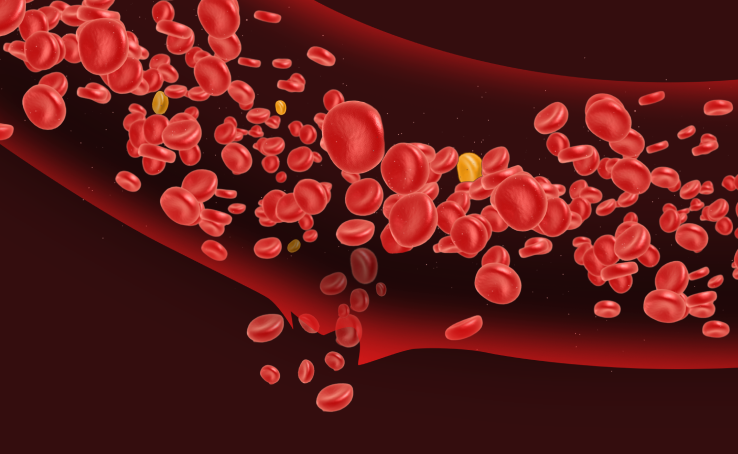Avg Price: $ 320-$ 10000


Treatment Time
Recovery Time
Hospitalization Days
Success Rate
Hemophilia, an inherited chromosomal bleeding disorder. It results in a deficiency of either factor VIII (FVIII) or factor IX (FIX), leading to recurrent bleeding into joints and muscles, causing conditions like hemophilic arthropathy and contractures.
It is estimated that approximately 10 to 80% of hemophilic patients are from developing countries like India. However, cases often go undiagnosed and unregistered. In developed nations, comprehensive care for hemophilic patients involves addressing medical and psychosocial aspects, transforming hemophilia from a life-shortening to a lifelong condition.
Since 1983, Hemophilia Federation India (HFI) has been the sole national umbrella organization in India, comprising 87 chapters ((74 affiliated and 13 Non-affiliated chapters)) across four regions, dedicated to the welfare of Persons with Hemophilia (PwH). HFI aims to provide comprehensive care, education, affordable treatment, psychosocial support, and economic rehabilitation, with the vision of achieving hemophilia without disability and children free of pain. The mission includes locating undiagnosed PWH, educating individuals and medical professionals about hemophilia care, and making treatment affordable and accessible.
Improvements in hemophilia care in India is paving the path for creating comprehensive centers with professionals offering ongoing care and laboratory facilities for inhibitor detection. The government is now extending support with free antihemophilic factors, allowing doctors to plan treatment budgets & therapeutic facilities, and prioritizing safe products during treatment. The availability of bypass agents like rFVIIa in India is expected to increase, backed by studies confirming safety and efficacy for PWH with inhibitors.
Treating doctors not only possess hemophilia management knowledge but also assume roles as policymakers and advisors, collaborating with the government to organize hemophilia care. The roles of HFI, medical associations, and governments are clearly oriented towards the common goal of enhancing care and providing a near-normal life for PWH.
With the introduction of newer medications, treatment options, and gene therapy (the US FDA approved a gene therapy drug late last year that costs over Rs 25 crore), hemophilia, which is classified as a rare and incurable disease, is becoming more manageable in India. India is becoming a premier destination in offering advanced, fully equipped hematology care facilities. The country is home to state-of-the-art therapeutic care facilities and a large pool of highly skilled and experienced hematologists who can effectively treat a variety of blood disorders like hemophilia with a high success rate. Therefore, choosing the best doctors for hemophilia treatment and the best hospitals for hemophilia treatment in India is getting convenient every day.
Hemophilia is an uncommon genetic Blood Disorder that reduces the blood's ability to clot, leading to an elevated susceptibility to bleeding and bruising. Hemophilia exists in various forms, categorized as severe, moderate, or mild, depending on the quantity of clotting factor present in the blood.
Following are two forms of Hemophilia.
Knowing the type of Hemophilia you have is crucial because different clotting factor treatments are needed for each type.
The root cause of Hemophilia is insufficient production of a crucial protein called clotting factors, essential for blood clot formation. Clotting factors along with platelets form clots and regulate bleeding. Inadequate levels of clotting factors heighten the risk of bleeding. Treatment for this condition involves replenishing the deficient clotting factor.
Take Charge of Your Health
Book a Free Consultation

Replacement Therapy: The primary treatment for severe hemophilia involves administering the necessary clotting factor through a vein using a tube. This replacement therapy can be administered to address an ongoing bleeding episode or can be scheduled regularly at home to prevent such episodes. Some individuals may undergo continuous replacement therapy. Clotting factor replacements can be derived from donated blood as plasma-derived clotting factors, or they can be produced in a laboratory as recombinant clotting factors, eliminating the need for human blood.
Additional Therapeutic Options:
Your doctor may advise you following diagnostic tests after assessing your medical history, symptoms, and overall health status in order to confirm hemophilia and proceed for the accurate treatment afterwards:
Your Health is Our Priority
Book a Free Consultation
Based on the timing of administration, Replacement Therapy for hemophilia treatment can be done by two ways: .
Procedure:
The following are a few major clinical issues that Replacement Therapy may cause:

Avail the Expert Health Advice
Book a Free Consultation
To minimize the risk of excessive bleeding and safeguard your joints, follow these guidelines for lifetime:
Over the past four decades, the management and care of individuals with hemophilia have undergone significant advancements. In the past, children with hemophilia faced a diminished quality of life and rarely survived beyond the first decade. Presently, both children and adults with hemophilia engage actively in daily school and work activities, experiencing a relatively normal life expectancy. These remarkable improvements stem largely from scientific progress in understanding hemophilia, translating into substantial enhancements in disease management and patient care.
Cohort studies, as well as recent prospective randomized research, indicate that primary prophylaxis may delay or prevent the onset of hemophilic arthropathy. \Recent research suggests that prophylactic treatment offers significant clinical advantages over episodic on-demand treatment, including a reduction in bleeding episodes, enhanced orthopedic function, and an overall improvement in quality of life.
The cost of hemophilia treatment in India varies according to various factors which are discussed in the next section of this article. However, the approximate cost of the procedure may range from AAAAAA—ZZZZZZ.
| Location | Minimum Cost ($) | Average Cost ($) | Maximum Cost ($) |
| Delhi | 350 | 5500 | 10000 |
| Mumbai | 380 | 4500 | 9500 |
| Chennai | 320 | 3800 | 8500 |
| Hyderabad | 350 | 5800 | 9800 |
| Location | Minimum Cost ($) | Average Cost ($) | Maximum Cost ($) |
| UK | |||
| USA | |||
| Turkey | |||
| Singapore |
Following are the factors affecting the cost of Hemophilia treatment in India:
An approximate cost of diagnostics for Haemophilia treatment:
| Diagnostic Procedure | Average Cost (₹) |
At Medflick, we envision a world in which there are no barriers to communication and everyone has easy access to the best medical care. We aim to widen access to healthcare around the world by leading the way in delivering holistic medical care with high standards of Medical Value Travel (MVT).
We provide you a comprehensive healthcare platform that forms a bridge between patients and leading medical facilities globally. We facilitate our patients in accessing the best healthcare services by coordinating every aspect of their journey. Medflick helps you with everything from scheduling appointments, getting second opinions, treatment plans, visa letters including concierge services to ensure a smooth and successful return journey.
Fostering expertise backed by commitment, resilience and years of experience, we connect you to a wide network of India's best doctors
Explore the most advanced, reputable and trusted hospitals in India, offering the highest levels of clinical and surgical excellence

The worlds most trusted personalized health community with more than 1,00, 000 members that share their journey, experiences and health insights. Join your community and get access to make informed health decisions.
Explore



